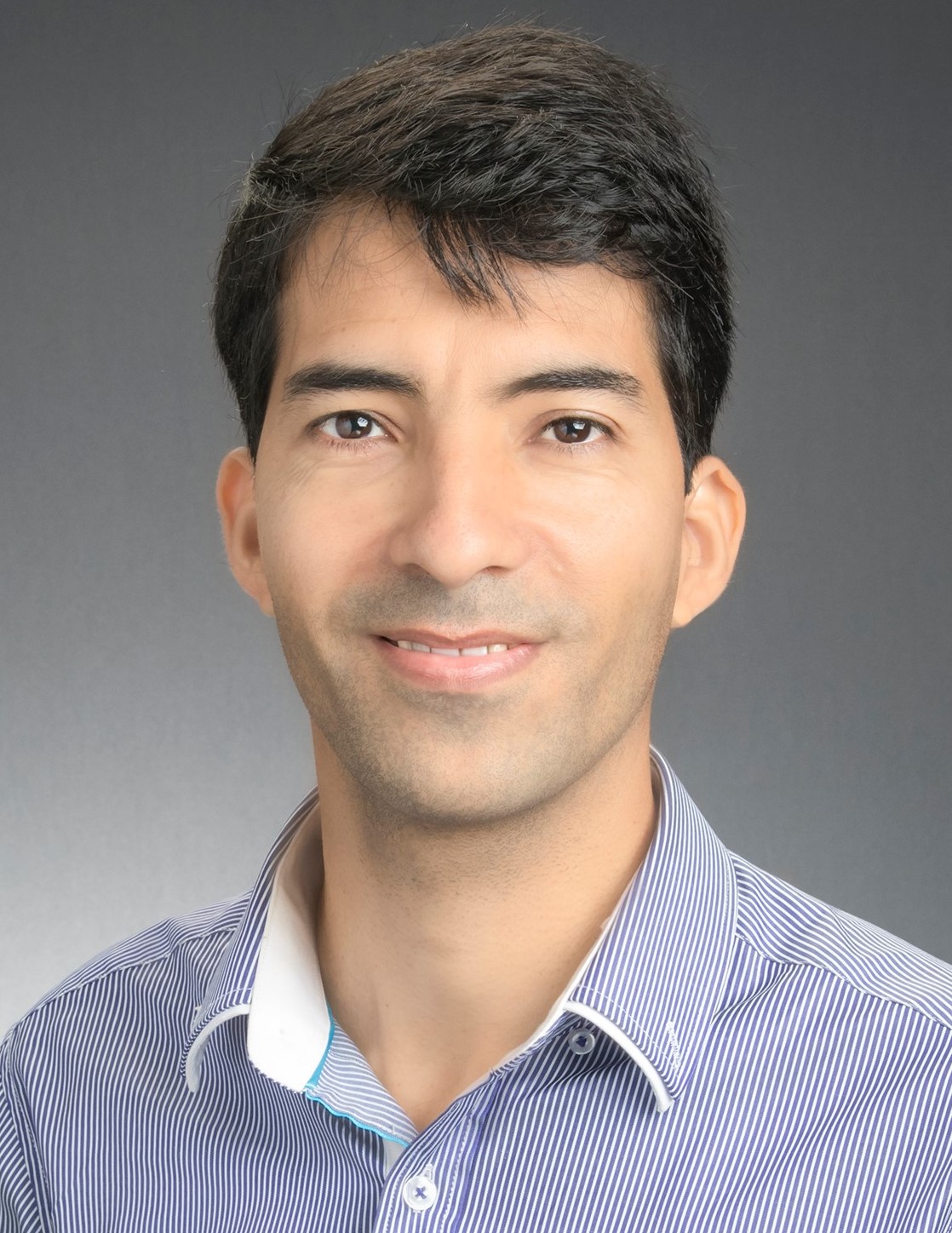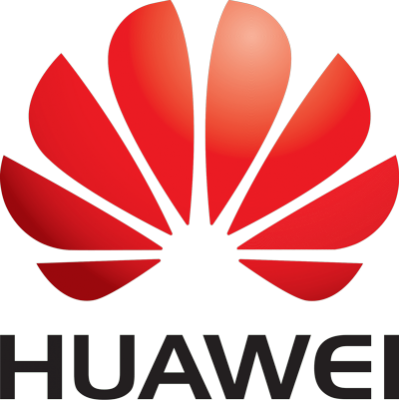| Time | Session | |
| 8:55 - 9:00 AM | Welcome and Introduction | |
| 9:00 - 9:30 AM | Keynote | |
| 9:30 - 11:00 AM | WS20-S1 NOMA5G: TECHNICAL SESSION I | Papers 1-7 |
| 11:00 - 12:30 PM | WS20-S2 NOMA5G: TECHNICAL SESSION II | Papers 8-14 |
| 13:00- 14:30 PM | WS20-S3 NOMA5G: TECHNICAL SESSION III | Papers 15-21 |
| 15:00 - 16:30 PM | WS20-S4 NOMA5G: TECHNICAL SESSION IV | Papers 22-28 |
 |
Keynote Talk: What Role Can Deep Learning Play in NOMA? Prof. Mojtaba Vaezi (Villanova University, USA) |
Abstract: As an emerging sub-field of machine learning, deep learning has become a prominent and rapidly growing research topic within the field of communications, both in academia and industry. Deep learning applications in communication systems hold the potential to transform wireless communication in an unforeseen manner. In this talk, we discuss how deep learning can be applied to solve challenging problems of the fifth-generation (5G) wireless networks beyond, particularly those related to non-orthogonal multiple access (NOMA). More specifically, with a few concrete examples, we illustrate how and when supervised deep neural networks (DNNs), and reinforcement learning should be applied for optimization and resource allocation in state-of-the-art wireless systems. We show that the deep learning solution can mimic existing solutions and/or surpass them. Deep learning can also be leveraged to represent the complexities of real-world wireless networks more accurately. This introduces a gold mine of research opportunities for 6G wireless networks.
Bio: Mojtaba Vaezi received his Ph.D. in Electrical Engineering from McGill University in 2014. From 2015 to 2018, he held several research positions at Princeton University. He is currently an Assistant Professor of ECE at Villanova University. His research interests include the broad areas of wireless communications and information theory. Among his publications in these areas is the book Multiple Access Techniques for 5G Wireless Networks and Beyond (Springer, 2019). Dr. Vaezi has served as the president of McGill IEEE Student Branch and the head of the Mobile Radio Network Design and Optimization Department at Ericsson. He is currently an Editor of IEEE Transactions on Communications and IEEE Communications Letters, and he was an Editor of IEEE Communications Magazine from 2014 to 2018. He has co-organized six NOMA workshops at IEEE VTC 2017-Spring, Globecom’17, ICC’18, Globecom’18, ICC’19, and ICC’20. Dr. Vaezi is a recipient of several academic, leadership, and research awards, including the 2020 IEEE Communications Society Fred W. Ellersick Prize, the 2013 IEEE Larry K. Wilson Regional Student Activities Award, and the Natural Sciences and Engineering Research Council of Canada (NSERC) Postdoctoral Fellowship in 2014.
| # | Paper Title | Authors and Affiliation |
| 1 | Autonomous Grant-free High Overloading Multiple Access based on Conjugated Data Symbols | Zhifeng Yuan, Yuzhou HU, Yihua Ma, Weimin Li and Zhigang Li (ZTE Corporation, China) |
| 2 | Joint Height Optimization and Channel Allocation for NOMA Enhanced UAV Relay Networks | Daosen Zhai, Huan Li, Ruonan Zhang, Yutong Wang and Dawei Wang (Northwestern Polytechnical University, China) |
| 3 | Energy-Efficient Joint Power Control and Receiver Design for Uplink mmWave-NOMA | Ming Zeng (Memorial University, Canada); Wanming Hao (Zhengzhou University, China); Animesh Yadav (Syracuse University, USA); Nam-Phong Nguyen (Hanoi University of Science and Technology, Canada); Octavia A. Dobre (Memorial University, Canada); H. Vincent Poor (Princeton University, USA) |
| 4 | Stochastic Geometry Based Modeling and Analysis on Network NOMA in Vehicular Networks | Yanshi Sun and Xuchu Dai (University of Science and Technology of China, China) |
| 5 | Security Performance Analysis for the Downlink NOMA Systems with Outage Constraint | Hongjiang Lei (Chongqing University of Posts and Telecommunications, China); Rui Gao (Chongqing University Of Posts And Telecommunications, China); Ki-Hong Park (King Abdullah University of Science and Technology (KAUST), Saudi Arabia); Imran Shafique Ansari (University of Glasgow, United Kingdom (Great Britain)); Kyeong Jin Kim (Mitsubishi Electric Research Laboratories (MERL), USA); Mohamed-Slim Alouini (King Abdullah University of Science and Technology (KAUST), Saudi Arabia) |
| 6 | Reinforcement Learning for User Clustering in NOMA-enabled Uplink IoT | Waleed Ahsan, Wenqiang Yi, Yuanwei Liu and Zhijin Qin (Queen Mary University of London, United Kingdom (Great Britain)); A Nallanathan (QMUL, United Kingdom (Great Britain)) |
| 7 | Activity Detection for Uplink Grant-Free NOMA in the Presence of Carrier Frequency Offsets | Takanori Hara (The University of Electro-Communications, Japan); Hiroki Iimori (Jacobs University Bremen, Germany); Koji Ishibashi (The University of Electro-Communications, Japan) |
| 8 | Subband Scheduling for NOMA with QoS and Aligned Transmission Scheme Constraints | Quang-Tuan Thieu (Academia Sinica & Research Center for Information Technology Innovation, Taiwan); Hung-Yun Hsieh (National Taiwan University, Taiwan) |
| 9 | Joint User Pairing and Association for Multicell NOMA: A Pointer Network-based Approach | Manyou Ma (The University of British Columbia, Canada); Vincent W.S. Wong (University of British Columbia, Canada) |
| 10 | Effective Rate of Downlink NOMA over κ - μ Shadowed Fading With Integer Fading Parameters | Vaibhav Kumar and Barry G Cardiff (University College Dublin, Ireland); Shankar Prakriya (Indian Institute of Technology, Delhi, India); Mark F. Flanagan (University College Dublin, Ireland) |
| 11 | Waveform-Domain NOMA: The Future of Multiple Access | Mehmet Mert Sahin (University of South Florida, USA); Huseyin Arslan (University of South Florida & Istanbul Medipol University, USA) |
| 12 | A General Framework and Novel Transceiver Architecture based on Hybrid Beamforming for NOMA in Massive MIMO Channels | Murat Bayraktar (Middle East Technical University, Turkey); Gokhan Muzaffer Guvensen (Middle East Technical University (METU), Turkey & University of California, Irvine (UCI), USA) |
| 13 | Performance Analysis of NOMA Enabled User and Control Plane Split Architecture in 5G Systems | Xianling Wang (Xiamen University of Technology, China); Haijun Zhang (University of Science and Technology Beijing, China); Yitong Liu and Hongwen Yang (Beijing University of Posts and Telecommunications, China); Yue Tian (Xiamen University of Technology, China) |
| 14 | Performance Evaluation and Optimization of Cooperative NOMA over Rayleigh Fading Channels | ZhongFan Zhang and Zhongwei Si (Beijing University of Posts and Telecommunications, China) |
| 15 | The Application of Intelligent Reflecting Surface in Downlink NOMA Systems | Jiakuo Zuo (Nanjing University of Posts and Telecommunications, China & Queen Mary University of London, United Kingdom (Great Britain)); Yuanwei Liu and Zhijin Qin (Queen Mary University of London, United Kingdom (Great Britain)); Chao Shen (Beijing Jiaotong University, China) |
| 16 | A Low-Complexity Approach for Sum-Rate Maximization in Cooperative NOMA Enhanced Cellular Networks | Phuc Dinh (Concordia University, Canada); Mohamed Amine Arfaoui (Concordia University & Texas A&M University at Qatar, Canada); Sanaa Sharafeddine (Lebanese American University, Lebanon); Chadi Assi (Concordia University, Canada); Ali Ghrayeb (Texas A&M University at Qatar, Qatar) |
| 17 | Energy and Spectral Efficiency Tradeoff in NOMA: Multi-Objective Evolutionary Approaches | Sinasi Cetinkaya (University of South Florida, USA); Huseyin Arslan (University of South Florida & Istanbul Medipol University, USA) |
| 18 | Hypercube-based Multidimensional Constellation Design for Uplink SCMA Systems | Monirosharieh Vameghestahbanati, Ian D. Marsland, Ramy Gohary and Halim Yanikomeroglu (Carleton University, Canada) |
| 19 | Design of SCMA Codebooks Using Differential Evolution | Kuntal Deka and Minerva Priyadarsini (IIT Goa, India); Sanjeev Sharma (IIT (BHU) Varanasi, India); Baltasar Beferull-Lozano (University of Agder, Norway) |
| 20 | Semi-Grant-Free Uplink NOMA with Contention Control: A Stochastic Geometry Model | Chao Zhang, Zhijin Qin, Yuanwei Liu and Kok Keong Chai (Queen Mary University of London, United Kingdom (Great Britain)) |
| 21 | Deep Learning-based Multi-User Multi-Dimensional Constellation Design in Code Domain Non-orthogonal Multiple Access | Minsig Han, Hanchang Seo, Ameha Tsegaye Tsegaye Abebe and Chung G. Kang (Korea University, Korea (South)) |
| 22 | Block Error Performance of NOMA with HARQ-CC in Finite Blocklength | Dileepa Madhubhashana Marasinghe (University of Oulu & Center for Wireless Communications, Finland); Nandana Rajatheva and Matti Latva-aho (University of Oulu, Finland) |
| 23 | Joint Resource Allocation for NOMA-Assisted MEC Networks | Haodong Li and Fang Fang (The University of Manchester, United Kingdom (Great Britain)) |
| 24 | Rate-Constrained Energy Minimization in Hybrid SWIPT for Relay-Assisted NOMA Networks | Guoxin Li (Army Engineering University of PLA, China); Deepak Mishra (University of New South Wales (UNSW) Sydney, Australia) |
| 25 | Resource Allocation for NOMA-MEC System: A Mean Field Game Approach | Qianqian Cheng, Lixin Li, Yan Sun and Dawei Wang (Northwestern Polytechnical University, China); Wei Liang (Northwestern Polytechnical University, China); Xu Li (Northwestern Polytechnical University, China); Zhu Han (University of Houston, USA) |
| 26 | Non-Orthogonal Multiple Access Based Radio Resource Management for M2M Communications | Shaoyi Xu and Jinlong Fang (Beijing Jiaotong University, China) |
| 27 | Resource Allocation Technique for Hybrid TDMA-NOMA System with Opportunistic Time Assignment | Xinchen Wei, Haitham Al-Obiedollah and Kanapathippillai Cumanan (University of York, United Kingdom (Great Britain)); Miao Zhang (Chongqing Jiaotong University, China); Jie Tang (South China University of Technology, China); Wei Wang (Nantong University, China); Octavia A. Dobre (Memorial University, Canada) |
| 28 | Sum-Throughput Maximization for NOMA-Based WPCN with Signal Alignment | Dongyeong Song (SNU, Korea (South)); Wonjae Shin (Pusan National University, Korea (South)); Jungwoo Lee (Seoul National University, Korea (South)); H. Vincent Poor (Princeton University, USA) |




.png%3Fitok=tRZd6hUQ)
.png%3Fitok=i1NV_JCh)


